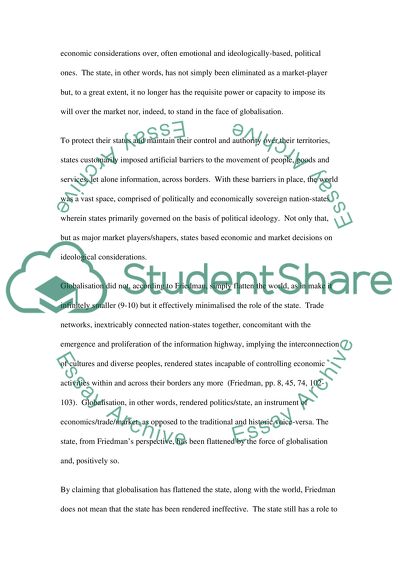Cite this document
(Analysis of Thomas Friedmans The World is Flat, and Tarek Barkawis Book Report/Review, n.d.)
Analysis of Thomas Friedmans The World is Flat, and Tarek Barkawis Book Report/Review. Retrieved from https://studentshare.org/politics/1511152-globalisation-high-school-essay
Analysis of Thomas Friedmans The World is Flat, and Tarek Barkawis Book Report/Review. Retrieved from https://studentshare.org/politics/1511152-globalisation-high-school-essay
(Analysis of Thomas Friedmans The World Is Flat, and Tarek Barkawis Book Report/Review)
Analysis of Thomas Friedmans The World Is Flat, and Tarek Barkawis Book Report/Review. https://studentshare.org/politics/1511152-globalisation-high-school-essay.
Analysis of Thomas Friedmans The World Is Flat, and Tarek Barkawis Book Report/Review. https://studentshare.org/politics/1511152-globalisation-high-school-essay.
“Analysis of Thomas Friedmans The World Is Flat, and Tarek Barkawis Book Report/Review”, n.d. https://studentshare.org/politics/1511152-globalisation-high-school-essay.


